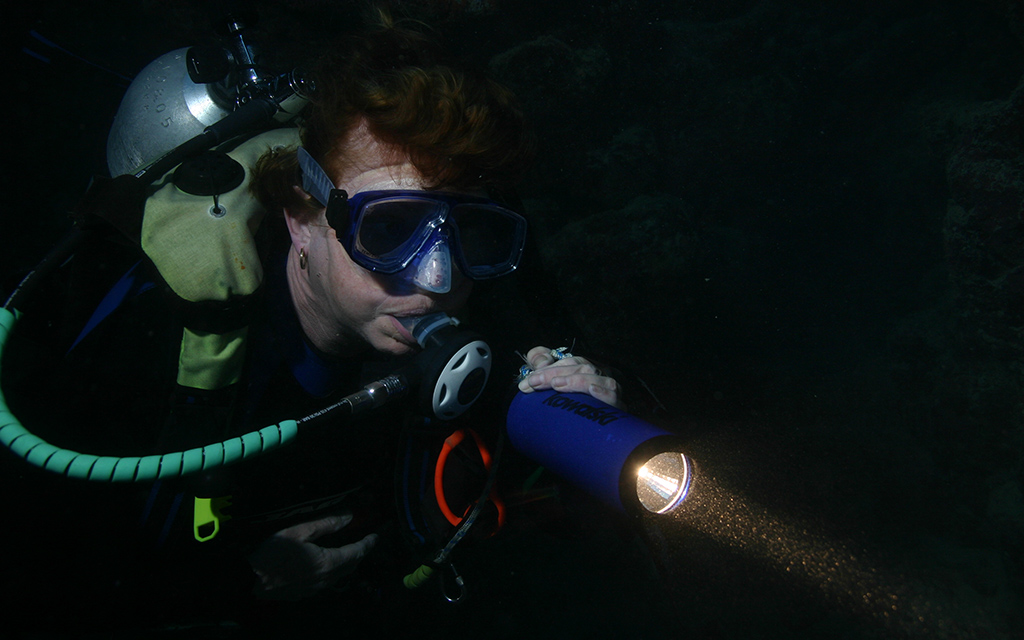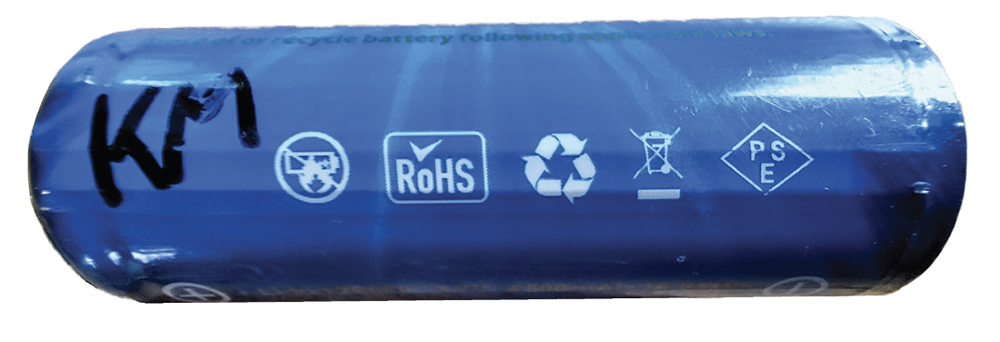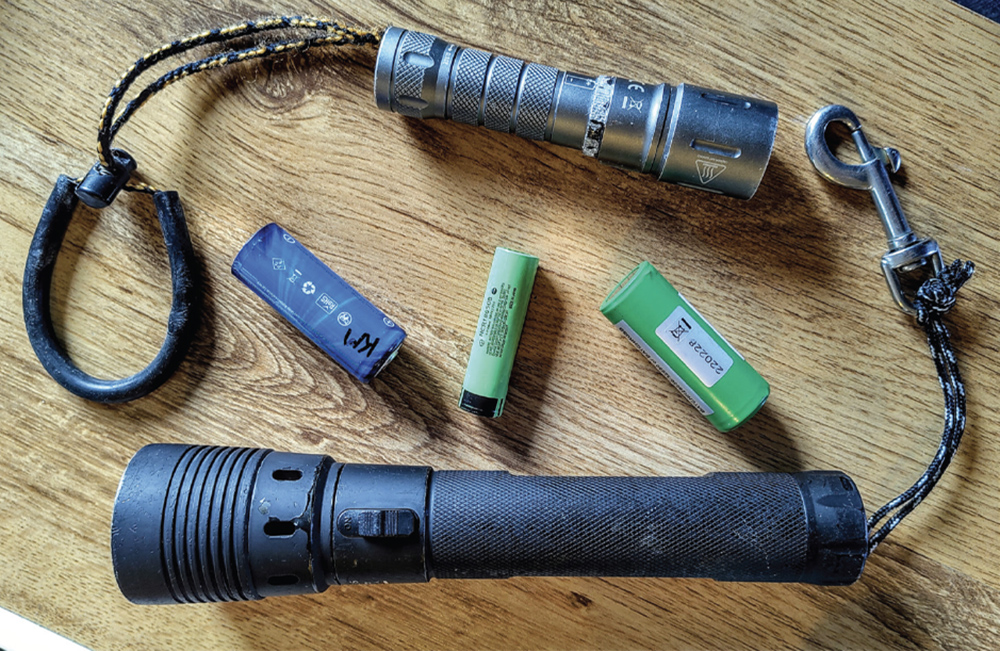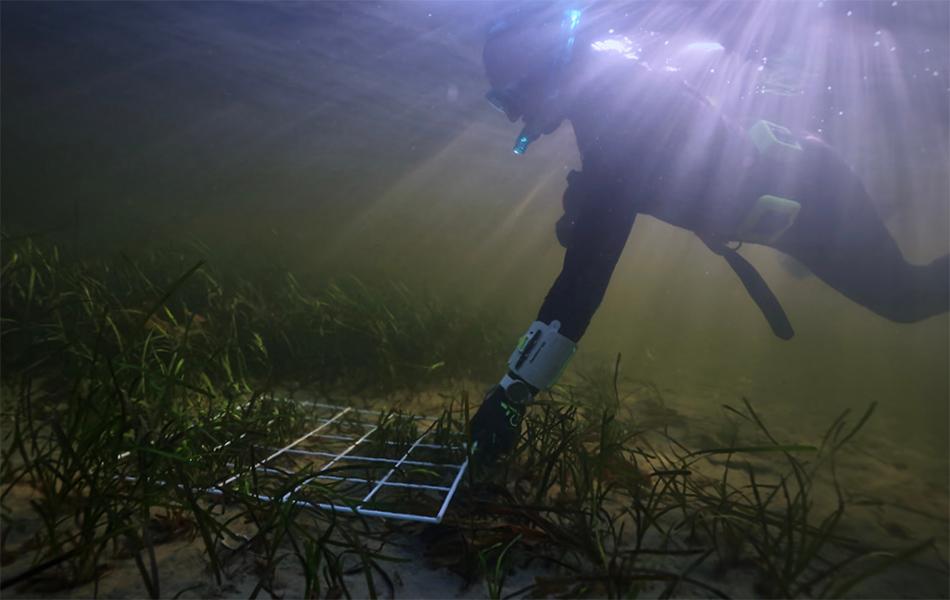
Photo credit: Bob Brading
Kerry MacKay sets out why we should dispose of our batteries and electrical products responsibly.
I am the proud owner of four dive torches. Three I use often, plus one disappointing purchase that has never really worked properly. This temperamental torch has been cluttering up my kit bag and the time has come for a clear-out. Did you know I am not supposed to put it in the bin?
Dive torches count as small electrical items and should be disposed of as such. In fact, many electrical items and their batteries have a symbol on them that looks like a wheelie bin with a cross over it. This is called the Waste Electrical and Electronic Equipment (WEEE) symbol and is telling us that we should not put that item in the landfill bin.

If you can’t put it in the bin, what should you do with it? Small electricals, including dive torches, contain useful materials like metals that are expensive to mine as raw materials. Not to mention that many of these materials and elements are finite resources and some are already quite scarce. Metals are not renewable, but they are infinitely recyclable.
Batteries in particular contain valuable elements such as lead, nickel, steel, zinc, mercury, cobalt, lithium, silver, and rare earth metals
It is around 13 times cheaper to recycle material that is already in circulation, and better for the planet. For example, copper (used commonly in wiring for electrical items) costs around $5,500 to mine and produce one kilo of virgin metal. Whereas recycled copper costs $2,500 per kilo and uses around 90% less energy compared to mining.
Batteries in particular contain valuable elements such as lead, nickel, steel, zinc, mercury, cobalt, lithium, silver, and rare earth metals. These can be difficult and expensive to mine, and when not disposed of properly, can be a nasty hazard to humans and the environment. We were all warned as children about how dangerous leaked battery acid can be. These are some of the key reasons behind the disposable vape ban announced earlier this year.
To recycle your small electrical items, take them to your local recycling centre. There will be a small electrical skip/collection point. Larger items such as appliances may be gathered in the same section or nearby in a dedicated area. Pay attention to the signs or ask a member of staff.

I would hope that most of you actively recycle batteries these days. Many supermarkets have collection points/bins where you can put all shapes and sizes of household batteries. Of course, bigger batteries such as boat or car batteries should be taken to your nearest recycling centre, where there will be a dedicated battery collection point.
Before throwing anything out I always suggest seeing if you can repair the item. If it is still under warranty then obviously make use of that. I’m not skilled in electronic repairs, so if you’re like me, try looking for a local repair café or shop, or ask the manufacturer if they offer a repair service even if it’s outwith the warranty period.
In Great Britain, the ‘Right to Repair Regulations’ came into force on 1 July 2021 and apply to specified energy-related products (mostly washing appliances, welders and commercial refrigeration). This requires access to spare parts and technical information for ‘professional repairers’. Work and campaigns are ongoing to apply similar rights to a wider range of electrical devices.
I think I’ve got through at least seven dive torches during my 15-year diving career, so far. Some have been donated to local repair cafes and where irreparable were turned into upcycled sculptures as part of the fun educational repair sessions. Others I’ve kept for spare parts. The rest, like my disappointing 4th torch, will be recycled and turned into new products. Maybe parts of my old torches contributed to your next shiny torch purchase.
Article ‘My torch died… now what? by Kerry MacKay first published in SCUBA magazine, Issue 146 June 2024.

 Author: Kerry MacKay | Posted 31 Jul 2024
Author: Kerry MacKay | Posted 31 Jul 2024



